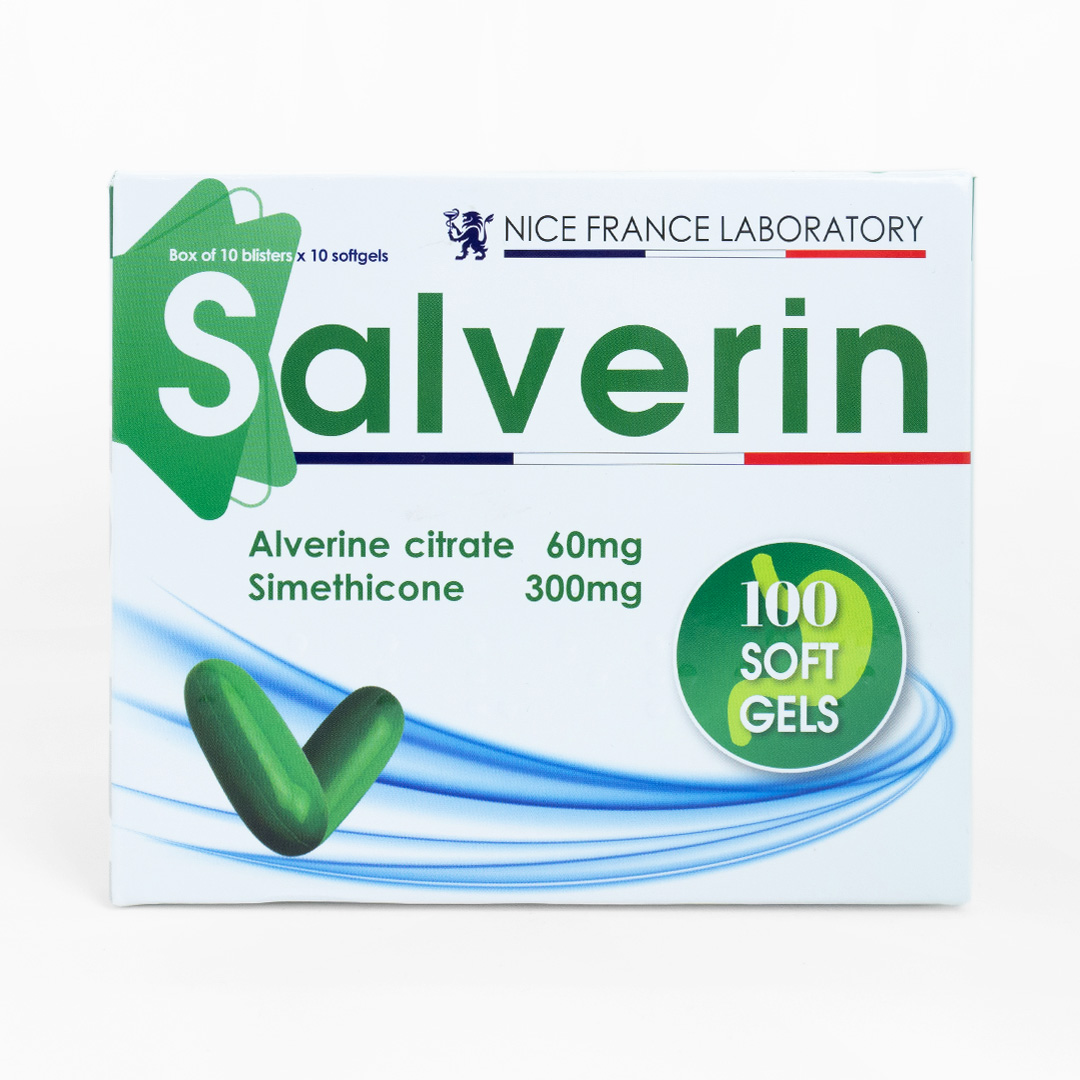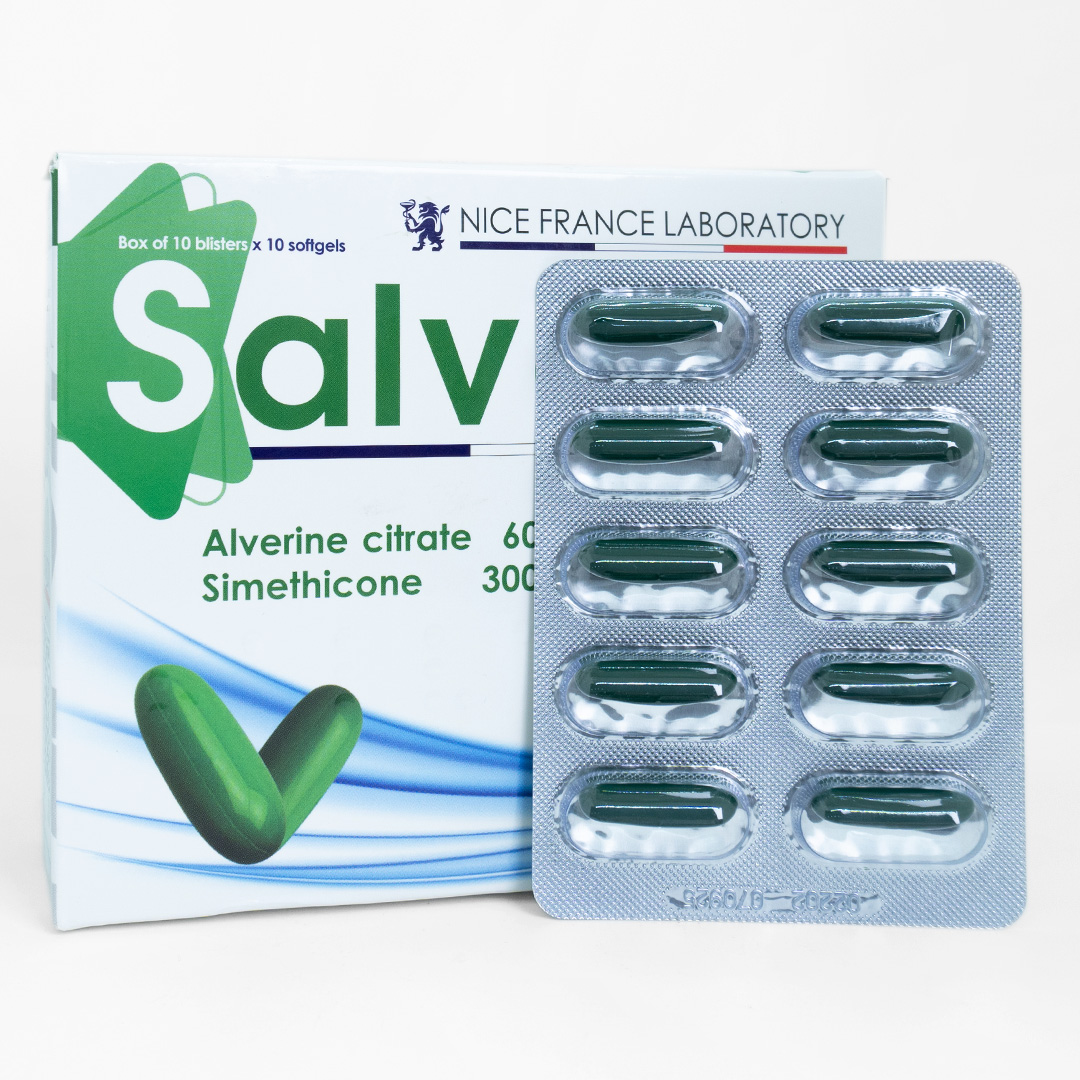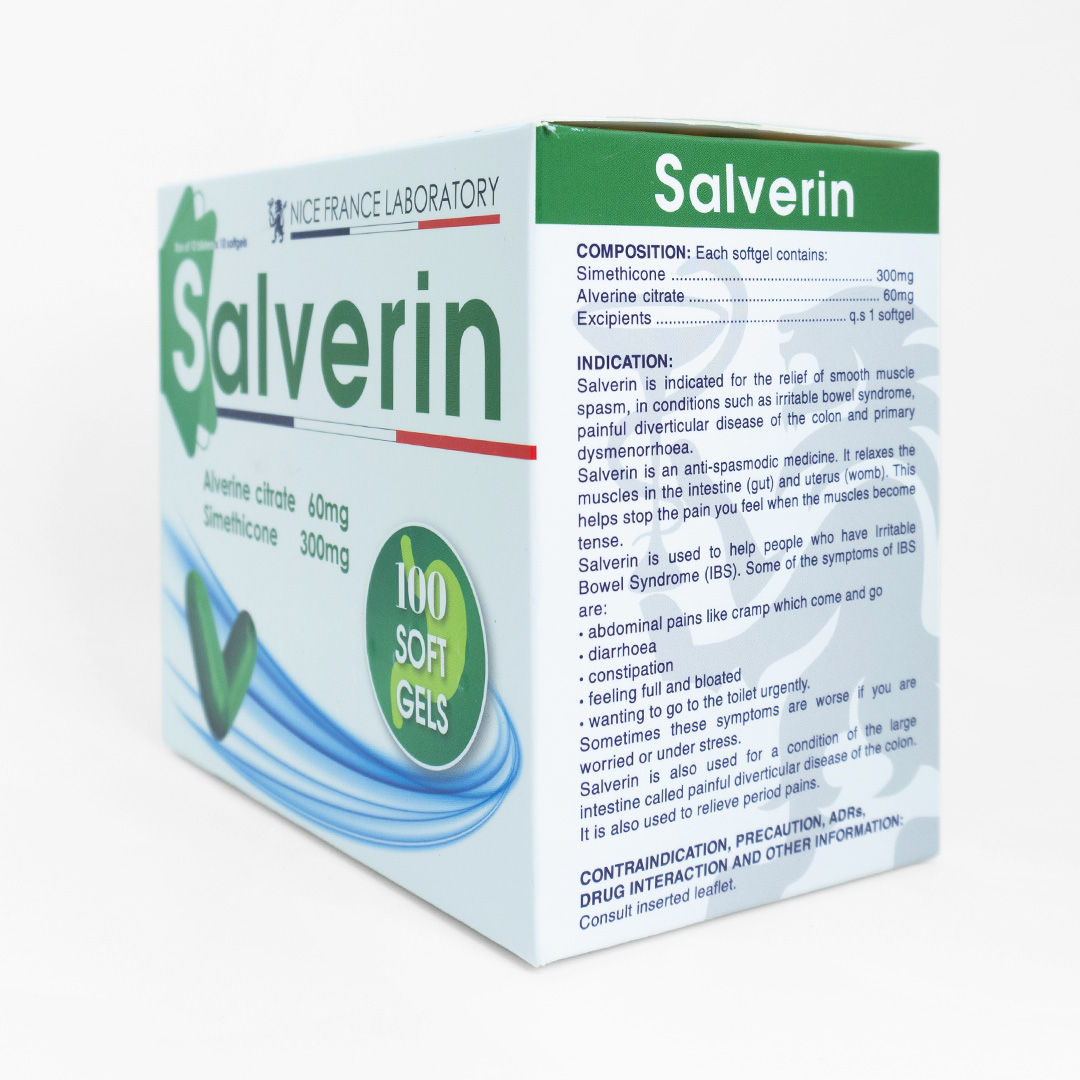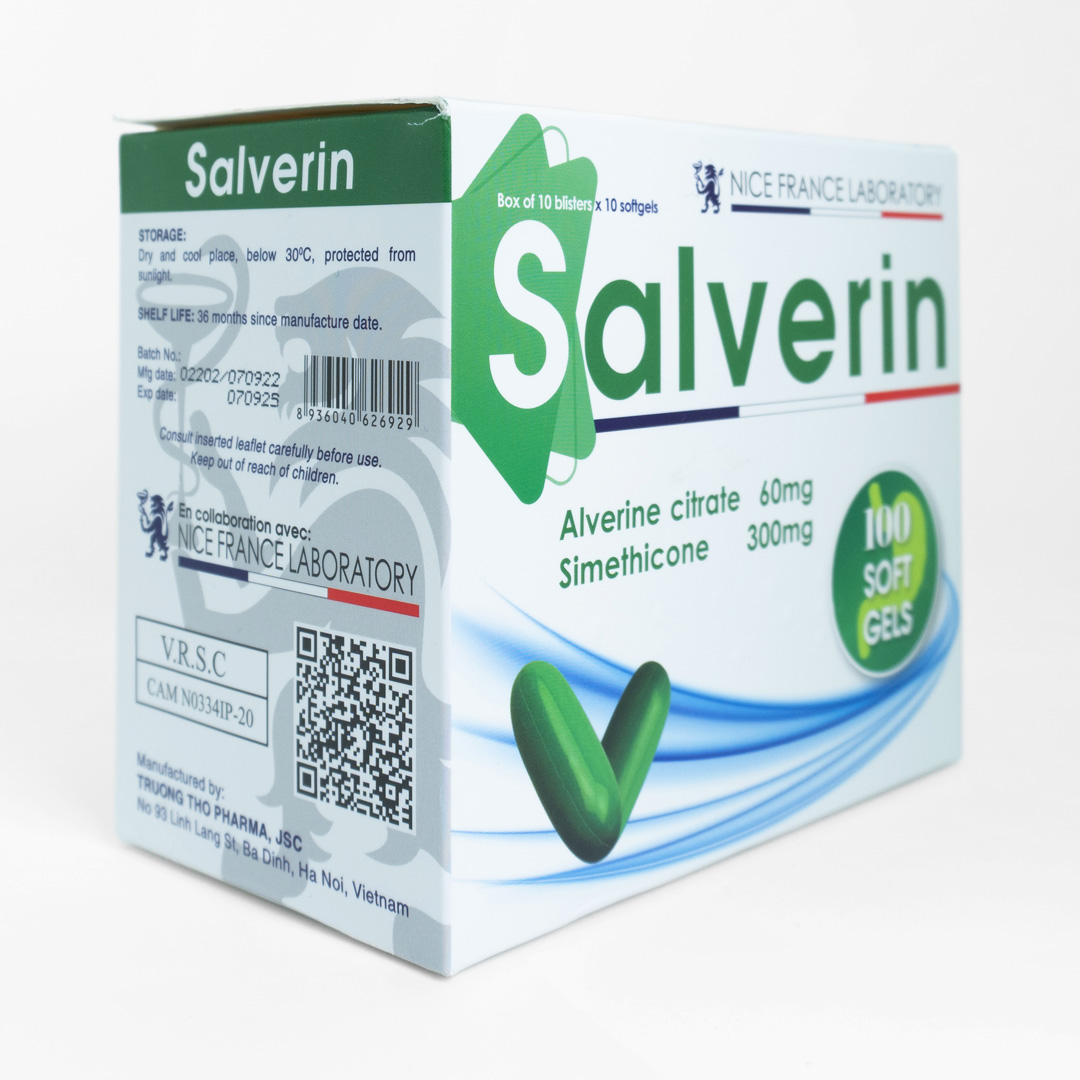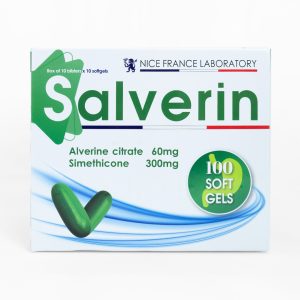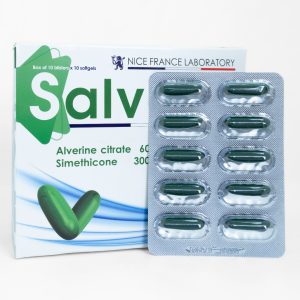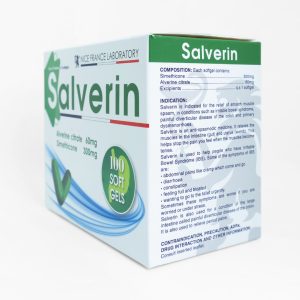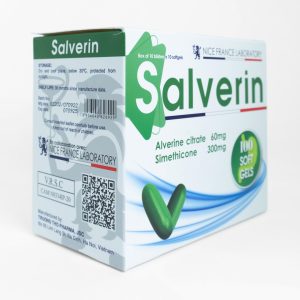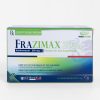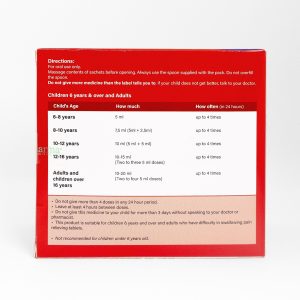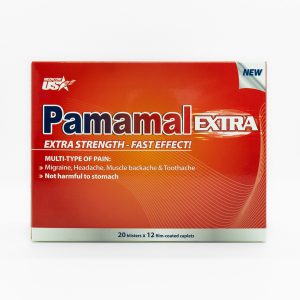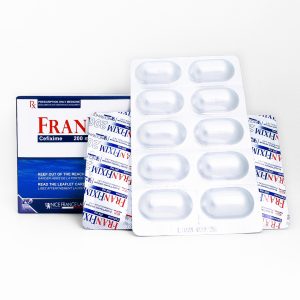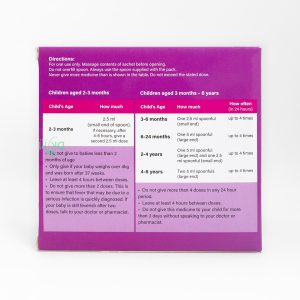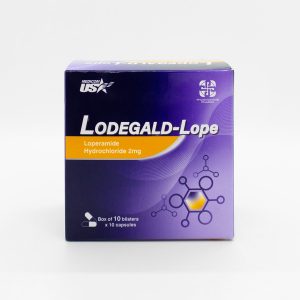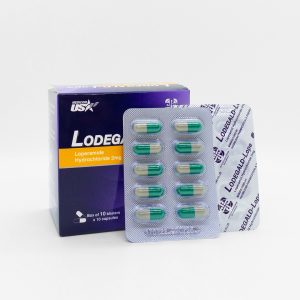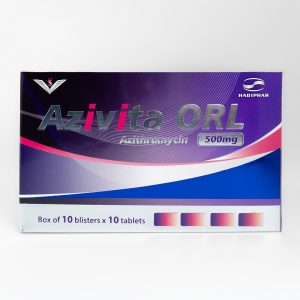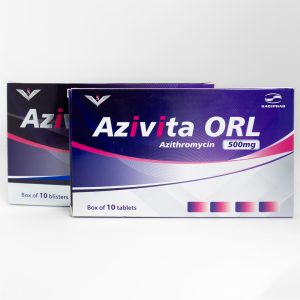INDICATION: Salverin is indicated for the relief of smooth muscle spasm, in conditions such as irritable bowel syndrome, painful diverticular disease of the colon and primary dysmenorrhea. Salverin is an anti-spasmodic medicine. It relaxes the muscles in the intestine (gut) and uterus (womb). This helps stop the pain you feel when the muscles become tense. Salverin is used to help people who have Irritable Bowel Syndrome (IBS). Some of the symptoms of IBS are:
abdominal pains like cramp which come and go
diarrhoea
constipation and bloated
feeling full and bloated
wanting to go to the toilet urgently. Sometimes these symptoms are worse if you are worried or under stress. Salverin is also used for a condition of the large intestine called diverticular disease of the colon. Salverin called painful period pains. It is also used to relieve.
DOSAGE & ADMINISTRATION:
Dosage:
Adults:
Always take this medicine exactly as described in this leaflet or as your doctor or pharmacist has told you. Check with your doctor or pharmacist if you are not sure.
The usual dose is 1 or 2 capsules taken up to 3 times a day.
Children: Not recommended for children under 12 years old.
Administration:
For oral use. Take Salverin with a glass of water.
CONTRAINDICATION:
Paralytic ileus
Intestinal obstruction
Hypersensitivity to the active substance or to any of the excipients
PRECAUTIONS & WARNINGS:
If this is the first time you have had these symptoms, consult your doctor before using any treatment.
If any of the following apply, do not use this medicinal product; it may not be the right treatment for you. See your doctor as soon as possible if:
you are aged 40 years or over
you have passed blood from the bowel
you are feeling sick or vomiting
you have lost your appetite or lost weight
you are looking pale and feeling tired
you are suffering from severe constipation
you have a fever
you have recently travelled abroad
you are or may be pregnant
you have abnormal vaginal bleeding or discharge
you have difficulty or pain passing urine.
Consult your doctor if you have developed new symptoms, or if your symptoms worsen, or if they do not improve after 2 weeks treatment.
OVER DOSAGE:
Symptoms:
Can produce hypotension and atropine-like toxic effects such as dizziness, tachycardia, mydriasis, blurred vision, dry mouth and throat, dyspnoea or dysuria.
Management:
Management is as for atropine poisoning with supportive therapy for hypotension.
Fatality has occurred following overdose with very high doses.
ADVERSE SIDE EFFECTS:
Within the system organ classes, adverse reactions are listed under headings of frequency (number of patients expected to experience the reaction), using the following categories:
Very common (≥1/10); Common (≥1/100 to <1/10); Uncommon (≥1/1,000 to <1/100); Rare (≥1/10,000 to <1/1,000); Very rare (<1/10,000); Not known (cannot be estimated from the available data).
The following undesirable effects were observed:
Immune system disorders: Not known: anaphylaxis, allergic reaction
Nervous system disorders: Not known: dizziness, headache
Respiratory, thoracic and mediastinal disorders: Not known: dyspnoea and/or wheezing
Gastrointestinal disorders: Not known: nausea
Hepatobiliary disorders: Not known: jaundice due to hepatitis (typically resolves on cessation of alverine), liver function test abnormal
Skin and subcutaneous tissue disorders: Not known: rash, itching
DRUG INTERACTION
None stated.
USE IN PREGNANCY AND LACTATION WOMAN
Although no teratogenic effects have been reported, use during pregnancy or lactation is not recommended as evidence of safety in preclinical studies is limited.
EFFECTS ON ABILITY TO DRIVE AND HANDLING MACHINE
May cause dizziness. Do not drive or use machinery if affected.
